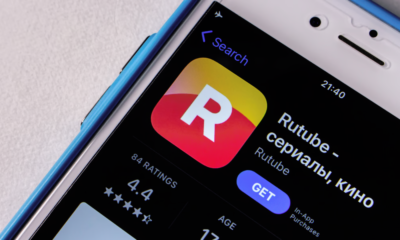Technology
The Role of a Data Validation Manager in Ensuring Data Accuracy and Integrity

In today’s data-driven world, the accuracy and reliability of data are critical to the success of any organization. Whether it’s making strategic business decisions, analyzing customer behavior, or optimizing operations, clean and validated data forms the backbone of effective decision-making. One of the most critical roles in maintaining the integrity of an organization’s data resources is the Data Validation Manager. This role ensures that all data entering a system is accurate, complete, correctly formatted, and adheres to predefined standards. With businesses increasingly relying on data to guide their strategies, the importance of this role continues to grow. This article explores the responsibilities, significance, and challenges of a Data Validation Manager, as well as the tools and processes involved in data validation.
The Importance of Data Validation in Modern Organizations
Data-Driven Decision Making
Data has become the driving force behind almost every significant decision within organizations today. From understanding customer preferences to optimizing supply chains, businesses use data to identify patterns, forecast trends, and generate insights that guide strategy and operations. However, the effectiveness of these decisions depends on the quality of the data being analyzed. Inaccurate or incomplete data can lead to erroneous conclusions, potentially causing financial loss, operational inefficiency, or missed opportunities.
For instance, in the retail sector, businesses rely on data to understand customer purchasing behavior and make decisions related to inventory management. Incorrect sales data could result in overstocking or understocking, leading to loss of revenue. In the healthcare industry, inaccurate patient data can result in misdiagnoses or improper treatment, which could have life-threatening consequences. Hence, accurate data is indispensable for informed and successful decision-making.
Ensuring Data Integrity
Data integrity refers to the accuracy and consistency of data throughout its lifecycle. It involves making sure that data is not altered in an unauthorized or accidental manner and remains correct and reliable over time. A Data Validation Manager plays a pivotal role in preserving data integrity by ensuring that only validated and error-free data is entered into the organization’s systems.
Without effective data validation practices, companies risk suffering from data corruption, duplication, and misalignment, which can distort the insights drawn from it. Ensuring data integrity is especially crucial in industries like finance, healthcare, and logistics, where high-stakes decisions are made based on data analysis.
Legal and Regulatory Compliance
Many industries are subject to strict regulations around data usage, including the handling of customer information and financial records. For example, the General Data Protection Regulation (GDPR) in Europe imposes strict guidelines on how organizations collect, process, and store personal data. Similarly, healthcare organizations must comply with regulations such as the Health Insurance Portability and Accountability Act (HIPAA) in the United States to protect patient information.
In such a landscape, data validation becomes a legal necessity to ensure that companies are handling data according to compliance requirements. A Data Validation Manager helps organizations meet these regulatory obligations by ensuring that data is properly validated and securely managed. Failure to comply with these regulations can lead to severe penalties and damage to a company’s reputation.
Key Responsibilities of a Data Validation Manager
A Data Validation Manager is responsible for overseeing the entire data validation process, ensuring that all data entering the system meets quality standards. Below are some of the key duties associated with the role:
Establishing Data Validation Rules and Protocols
One of the primary responsibilities of a Data Validation Manager is to establish clear validation rules for incoming data. These rules define what constitutes valid data in terms of format, completeness, and accuracy. Validation rules may vary depending on the type of data being handled and the industry in which the organization operates. For example, a healthcare organization may have different validation rules for patient information than a retail company would have for customer purchase data.
The Data Validation Manager works closely with data analysts, software engineers, and other stakeholders to ensure that validation protocols align with the organization’s broader data strategy and regulatory requirements.
Implementing Data Validation Processes
Once validation rules are established, the Data Validation Manager must ensure that these rules are effectively implemented in the organization’s systems and workflows. This typically involves configuring software tools that automatically validate data upon entry, ensuring that only data that meets predefined criteria is accepted.
Additionally, the Data Validation Manager oversees the manual validation processes, which might involve human intervention to review certain data entries that cannot be automatically verified. For example, if an organization deals with scanned documents or handwritten forms, a degree of manual validation may be required to ensure the accuracy of data input.
Monitoring and Reporting Data Quality Issues
Ongoing monitoring of data quality is essential to maintaining data accuracy and integrity over time. A Data Validation Manager is responsible for monitoring the quality of incoming data and identifying potential issues such as data duplication, missing information, or incorrect formatting.
By generating regular reports on data quality, the Data Validation Manager can alert relevant departments to any issues that require attention. These reports also provide valuable insights into the overall health of the organization’s data, allowing the company to make informed decisions about process improvements.
Collaborating with Other Departments
Data validation is a cross-functional responsibility that requires collaboration between different departments, including IT, marketing, finance, and operations. A Data Validation Manager must work closely with these departments to ensure that validation processes are aligned with the needs of each business unit.
For example, the marketing team may require validated customer data to create targeted campaigns, while the finance department needs accurate sales data to forecast revenue. By collaborating with various teams, the Data Validation Manager helps ensure that the organization’s data validation strategy supports its overall business objectives.
Continuous Improvement of Data Validation Processes
Data validation is not a one-time task but an ongoing process. As the organization’s data requirements evolve and new types of data are introduced, the Data Validation Manager must continuously refine and update validation rules and protocols. This may involve adopting new data validation technologies, integrating machine learning models to automate error detection, or developing more sophisticated reporting tools to monitor data quality.
Continuous improvement also involves analyzing historical data validation issues and implementing corrective actions to prevent similar problems in the future. The Data Validation Manager plays a crucial role in driving these improvements to ensure that data quality remains high as the organization grows.
Challenges Faced by Data Validation Managers
While the role of a Data Validation Manager is essential, it also comes with several challenges. Here are some of the common obstacles faced by professionals in this role:
Handling Large Volumes of Data
As organizations grow, the amount of data they collect and process also increases. Managing and validating large volumes of data can be a daunting task, especially when dealing with diverse data sources such as customer interactions, transactions, social media, and IoT devices. A Data Validation Manager must find ways to scale validation processes without compromising on accuracy or speed.
Dealing with Incomplete or Inaccurate Data
Incomplete or inaccurate data is one of the most significant challenges in data validation. For example, customers may submit forms with missing fields, or system errors may cause data to be incorrectly formatted. Identifying and correcting these issues requires meticulous attention to detail, as well as robust validation processes that can detect anomalies.
Balancing Automation and Manual Validation
While automation can greatly improve the efficiency of data validation, not all data can be validated automatically. Certain types of unstructured data, such as images or free-text responses, may require human intervention to validate. Balancing the use of automated tools with manual processes is a challenge that requires careful consideration.
A Data Validation Manager must decide when it’s appropriate to use automation and when human expertise is needed, ensuring that both approaches are integrated into the overall validation strategy.
Staying Compliant with Regulatory Requirements
As discussed earlier, many industries are subject to strict regulations around data handling. Staying compliant with these regulations requires constant vigilance, as even minor mistakes can lead to significant legal repercussions. A Data Validation Manager must stay up-to-date with regulatory changes and ensure that validation processes are adjusted accordingly.
Tools and Technologies for Data Validation
Several tools and technologies are available to assist Data Validation Managers in ensuring data accuracy. Below are some of the most commonly used:
Data Validation Software
Specialized software tools are designed to automate the process of data validation. These tools can be configured to apply specific validation rules to incoming data, flagging any errors or inconsistencies for further review. Some examples include Talend, Informatica, and Ataccama.
Machine Learning Models
Machine learning models can be used to improve the accuracy of data validation by identifying patterns and anomalies that may not be immediately apparent through traditional validation methods. These models can learn from historical data to predict and flag potential issues in real-time.
Data Quality Dashboards
Data quality dashboards provide real-time visibility into the state of an organization’s data. These dashboards allow Data Validation Managers to monitor data quality metrics such as error rates, completeness, and consistency, providing insights into areas that require attention.
Conclusion
In today’s data-driven world, the accuracy and reliability of data are critical to an organization’s success. The role of a Data Validation Manager is central to ensuring that data is accurate, complete, and correctly formatted, thus maintaining data integrity. By implementing robust validation processes, collaborating with different departments, and continuously improving data quality, a Data Validation Manager ensures that businesses can make informed, data-driven decisions. Despite the challenges involved, this role is becoming increasingly vital as organizations continue to rely on data for strategic decision-making, regulatory compliance, and operational efficiency.
Technology
SpyDialer: A Comprehensive Guide to Reverse Phone Lookup

In today’s digital landscape mystery phone calls and messages are a common concern. SpyDialer is a powerful tool that allows users to identify unknown callers verify contact information, and reconnect with acquaintances—all for free. By entering a phone number users can access comprehensive details about its owner helping to demystify missed calls and avoid unwanted communications.
This article will delve into the features, benefits and ethical use of SpyDialer guiding you through its functionality while addressing common questions.
What is SpyDialer?
SpyDialer is a free reverse phone lookup tool designed to help users find information about phone numbers, addresses, emails, and people. It provides a user-friendly platform for searching public records, making it easier to identify unknown callers or verify details.
SpyDialer offers four main search options:
- Reverse Phone Lookup
- Name Lookup
- Email Lookup
- Address Lookup
Key Features of SpyDialer
1. Reverse Phone Lookup
SpyDialer allows users to input a mystery phone number and identify its owner. This feature is particularly useful for avoiding spam calls or verifying the identity of unknown callers.
2. Name Lookup
Users can search for individuals by name, helping them reconnect with friends or verify personal information.
3. Email Lookup
SpyDialer’s email lookup feature enables users to verify email senders and avoid phishing scams.
4. Address Lookup
By entering an address, users can discover information about its residents or owners.
5. Voicemail Playback
Unique to SpyDialer, this feature lets users listen to voicemail greetings associated with a phone number.
How SpyDialer Works
SpyDialer gathers publicly available information and compiles it into an easily accessible database. Users simply need to:
- Visit the official SpyDialer website.
- Enter the phone number, name, email, or address they want to search.
- Select one of the four search options.
- View the detailed results provided by the platform.
Why Use SpyDialer?
Ease of Use
SpyDialer’s intuitive interface ensures that users of all technical abilities can navigate the platform with ease.
Free Access
Unlike many similar services, SpyDialer is entirely free to use, with no hidden fees or subscription requirements.
Instant Results
Users receive search results almost instantly, saving time and effort.
Privacy Protection
By identifying unknown callers or verifying email addresses, SpyDialer helps users avoid scams and maintain their privacy.
Practical Applications of SpyDialer
1. Identifying Unknown Callers
Missed calls from unknown numbers are common. SpyDialer helps users identify these callers, offering peace of mind.
2. Verifying Email Senders
Avoid phishing attempts by verifying the authenticity of email addresses.
3. Reconnecting with Old Friends
Use the name lookup feature to find contact details for old acquaintances.
4. Property Research
Gain insights into property owners or residents with the address lookup tool.
Tips for Using SpyDialer Effectively
1. Input Accurate Information
Ensure you provide accurate details for the best search results.
2. Cross-Check Information
Verify the details provided by SpyDiale’r with other sources for added accuracy.
3. Respect Privacy
Use the platform responsibly and ethically, avoiding any misuse of the data.
Ethical Considerations When Using SpyDialer
While SpyDiale’r is a valuable tool, it’s important to use it responsibly:
- Respect Others’ Privacy: Do not use the platform to invade someone’s privacy or for unlawful purposes.
- Comply with Local Laws: Ensure your use of SpyDiale’r adheres to applicable laws and regulations.
Limitations of SpyDialer
1. Data Accuracy
While SpyDiale’r uses publicly available records, its information may not always be up-to-date or accurate.
2. U.S.-Focused Service
SpyDiale’r primarily focuses on U.S.-based queries, limiting its usefulness for international searches.
How SpyDialer Protects User Data
SpyDiale’r prioritizes user privacy by ensuring that searches are anonymous and secure. The platform does not require account creation, allowing users to maintain their privacy while accessing information.
Common Misconceptions About SpyDialer
1. SpyDialer is a Tracking Tool
SpyDiale’r is not a GPS tracking tool. It simply provides publicly available information about phone numbers, names, emails, or addresses.
2. SpyDialer Collects Sensitive Data
The platform only uses information that is already publicly accessible, ensuring it complies with privacy regulations.
How to Remove Information from SpyDialer
If you wish to remove your information from SpyDialer’s database, you can request an opt-out through their website. This ensures your details remain private.
Conclusion
SpyDialer is a valuable tool for anyone looking to identify unknown callers, verify email senders, or reconnect with people. Its free and easy-to-use platform makes it accessible to all, while its commitment to privacy ensures user trust. However, like any tool, it should be used responsibly and ethically to maintain its benefits.
Whether you’re managing personal safety or simply curious about a missed call, SpyDiale’r provides a quick and efficient solution for your lookup needs.
FAQs
Is SpyDiale’r free?
Yes, SpyDiale’r is completely free and does not require registration or payment.
How accurate is SpyDialer’s data?
While SpyDiale’r relies on public records, data accuracy may vary depending on its source.
Can I use SpyDiale’r internationally?
SpyDiale’r primarily supports U.S.-based queries and may not provide comprehensive results for international searches.
Is SpyDiale’r legal to use?
Yes, SpyDiale’r operates within legal boundaries by using publicly available information.
Can I remove my information from SpyDiale’r?
Yes, users can submit an opt-out request to have their information removed from the platform.
Does SpyDiale’r work for businesses?
SpyDiale’r is designed for personal use and may not be suitable for comprehensive business needs.
Technology
Namelix: Your Go-To AI Business Name Generator

In the digital age, creating a unique and memorable name for your business is a vital step toward establishing a strong brand identity. Namelix, an AI-powered business name generator, has emerged as a reliable and innovative tool designed to simplify this process. With its intuitive interface, powerful algorithms, and ability to deliver creative results in seconds, Namelix is redefining the way businesses approach branding.
Understanding Namelix
Namelix is a free, web-based application that uses artificial intelligence to generate business names. Whether you’re launching a startup, rebranding an existing company, or brainstorming ideas for a side project, Namelix offers a comprehensive solution. The platform not only provides an extensive list of potential names but also checks domain availability, ensuring your chosen name has an online presence.
The Need for a Business Name Generator
Selecting a business name is often a daunting task. A good name should be memorable, relevant, and reflect your brand’s identity. It must also be unique enough to avoid legal conflicts and resonate with your target audience. Namelix addresses these challenges by streamlining the naming process. Instead of spending hours brainstorming or hiring expensive branding agencies, entrepreneurs can leverage Namelix’s AI to explore creative options effortlessly.
Features of Namelix
AI-Driven Creativity
Namelix uses cutting-edge machine learning algorithms to understand user preferences. By analyzing inputs such as keywords, industry, and style preferences, the AI generates names that are both relevant and imaginative.
Customization Options
Users can customize the output by selecting name styles, such as short names, compound words, or names inspired by specific languages. This ensures that the generated names align with the user’s vision and industry standards.
Domain Availability Checks
One standout feature of Namelix is its ability to check the availability of domain names. This functionality is invaluable in today’s digital-first world, where an online presence is crucial for any business.
Intuitive Interface
The platform is designed with simplicity in mind. Its user-friendly interface makes it accessible to individuals with little to no technical expertise.
Free Access
Nameli’x is completely free to use, making it an excellent choice for startups and small businesses operating on a tight budget.
How Namelix Works
Using Nameli’x is a straightforward process. Users start by entering relevant keywords related to their business. These could include the type of service offered, the target audience, or the desired brand image. Next, users select their preferred name styles and tweak settings for creativity levels. Within seconds, Nameli’x generates a curated list of potential names, complete with available domain options.
Benefits of Using Namelix
Time-Saving Solution
Nameli’x eliminates the need for extensive brainstorming sessions, providing results in seconds. This allows business owners to focus on other aspects of their venture.
Cost-Effective Option
Hiring branding consultants or agencies can be expensive. Nameli’x offers a free alternative without compromising on quality.
Enhanced Creativity
The AI-driven approach ensures that users are presented with options they might not have considered on their own.
Versatility
Nameli’x caters to various industries and business types, making it a versatile tool for entrepreneurs across different domains.
Examples of Businesses Benefiting from Namelix
Startups, freelancers, small businesses, and even large corporations have found value in Namelix’s capabilities. For example, a tech startup might use Nameli’x to generate modern, innovative names, while a boutique bakery might seek something elegant and whimsical.
Challenges and Limitations
While Nameli’x offers numerous advantages, it’s important to acknowledge its limitations. The tool relies heavily on the quality of user inputs. Poorly chosen keywords or unclear preferences may lead to less satisfactory results. Additionally, while the platform checks domain availability, it doesn’t ensure trademark clearance, requiring users to conduct further research before finalizing a name.
The Future of Namelix and AI Branding Tools
As artificial intelligence continues to evolve, tools like Nameli’x are expected to become even more sophisticated. Future iterations may include features such as multilingual support, deeper integration with branding guidelines, and enhanced trademark checking capabilities.
Tips for Maximizing Namelix’s Potential
Be specific with your keywords to guide the AI effectively.
Experiment with different name styles and creativity levels.
Use the domain availability feature to secure your online presence promptly.
Conclusion
Nameli’x is a game-changer for entrepreneurs and businesses looking to establish a strong brand identity. Its AI-driven approach, user-friendly design, and cost-free access make it an indispensable tool in the modern branding toolkit. By combining innovation with practicality, Nameli’x empowers users to create unique, memorable, and relevant business names effortlessly.
FAQs
1. Is Namelix completely free to use?
Yes, Namelix is entirely free, allowing users to generate names and check domain availability without incurring costs.
2. Can Namelix ensure trademark availability for the names it generates?
No, while Namelix checks domain availability, users must conduct separate trademark checks to ensure legal compliance.
3. What types of businesses can use Namelix?
Namelix is versatile and caters to startups, small businesses, freelancers, and even larger corporations across various industries.
4. Does Namelix support multiple languages?
Currently, Namelix focuses primarily on English names, but future updates may include multilingual capabilities.
5. Can I save the names generated by Namelix for later use?
Yes, Namelix allows users to save their favorite suggestions for future reference.
6. How does Namelix handle domain availability checks?
Namelix provides real-time domain availability information for each name it generates, simplifying the process of securing an online presence.
Technology
Solscan: A Comprehensive Blockchain Explorer for the Solana Network

The blockchain revolution has brought about numerous tools to enhance user interaction and understanding of decentralized networks. Among them, Solscan stands out as an essential platform for anyone delving into the Solana blockchain. Offering real-time insights into transactions, smart contracts, token prices, and network analytics, Solscan serves as a powerful resource for developers, investors, and enthusiasts alike. This article explores Solscan’s capabilities, its importance in the blockchain ecosystem, and how it enriches the Solana community.
Understanding Solscan and Its Role in the Solana Ecosystem
Solscan is a blockchain explorer and analytics platform designed specifically for the Solana blockchain. It functions as a window into the network, enabling users to search, view, and analyze blockchain data with ease. Solana, known for its high-speed transactions and low fees, has rapidly gained traction among developers and users. Solscan complements this ecosystem by offering a user-friendly interface for tracking and understanding on-chain activity.
As a blockchain explorer, Solscan provides detailed information about transactions, blocks, token transfers, and wallets. Its analytics capabilities further empower users to make informed decisions by analyzing trends, network activity, and the performance of decentralized applications (dApps).
Key Features of Solscan
Transaction Tracking
Solscan allows users to monitor individual transactions on the Solana blockchain. By entering a transaction ID, users can view comprehensive details, including the status, fee, block time, and associated wallets.
Block Exploration
Each block on the Solana blockchain contains a wealth of data. Solscan presents this data in an easily digestible format, showcasing block heights, timestamps, validators, and transaction counts.
Token and Market Analytics
Solscan tracks token performance, including prices, market caps, and trading volumes. This feature is particularly useful for traders and investors looking to monitor token trends.
Smart Contract Insights
For developers and blockchain enthusiasts, Solscan provides an in-depth look at smart contracts. Users can explore contract details, associated transactions, and interactions, fostering transparency and trust.
NFT and DeFi Integration
With Solana’s growing prominence in the NFT and DeFi spaces, Solscan includes features to track non-fungible token (NFT) collections and decentralized finance (DeFi) protocols. This integration makes Solscan a versatile tool for the broader blockchain community.
User-Friendly Interface
Solscan’s intuitive design ensures accessibility for both beginners and experienced blockchain users. The platform organizes complex data into clear categories, simplifying navigation and data interpretation.
The Importance of Solscan in the Blockchain Landscape
Enhancing Transparency
Blockchain technology thrives on transparency, and Solscan upholds this principle by making Solana’s blockchain data easily accessible. Users can independently verify transactions, monitor wallet activities, and scrutinize smart contracts.
Empowering Decision-Making
For investors and traders, Solscan serves as a vital resource. By providing up-to-date information on token performance, users can make data-driven decisions regarding their investments.
Supporting Developers
Developers rely on blockchain explorers to test and debug their applications. Solscan’s detailed analytics and contract insights enable developers to fine-tune their dApps and smart contracts.
Building Trust
By offering a window into the blockchain, Solscans fosters trust among users. Transparency and accountability are crucial in the decentralized world, and Solscans contributes significantly to these values.
How to Use Solscan Effectively
Searching for Transactions
To track a transaction, users can enter the transaction ID in the search bar. The resulting page displays all relevant details, including the transaction status, fees, and involved addresses.
Exploring Wallet Activities
Users can enter a wallet address to view its transaction history, token holdings, and associated activities. This feature is useful for monitoring wallet performance and activity.
Navigating Smart Contracts
Developers can use Solscans to explore and analyze smart contracts on the Solana blockchain. By entering the contract address, users can view interactions, code snippets, and related transactions.
Monitoring Market Trends
Solscan’s market analytics section provides a snapshot of token prices, market caps, and trading volumes. Users can stay updated on market movements and identify potential investment opportunities.
The Role of Solscan in the Growth of Solana
Solana’s rise as a high-performance blockchain network has been accompanied by the growing demand for reliable analytics tools. Solsca’n has become an integral part of this ecosystem by bridging the gap between blockchain data and user understanding. Its role in fostering transparency, supporting developers, and empowering users is vital for the continued growth of the Solana network.
Challenges and Future Prospects for Solscan
While Solsca’n has proven to be a valuable tool, it faces challenges as the blockchain space evolves. The rapid growth of the Solana network brings increased data volume, necessitating continuous upgrades to Solscan’s infrastructure. Additionally, maintaining user trust and ensuring data accuracy will remain ongoing priorities.
Looking ahead, Solscan’s future appears promising. With plans for expanded features, integration with other blockchain platforms, and enhanced user experiences, Solsca’n is well-positioned to remain a cornerstone of the Solana ecosystem.
Conclusion
Solscans stands as a beacon of accessibility and transparency in the fast-paced world of blockchain technology. By offering a comprehensive suite of features for tracking, analyzing, and understanding Solana’s blockchain, it caters to the needs of a diverse user base. Whether you’re a developer, investor, or curious enthusiast, Solscans provides the tools you need to navigate the Solana network confidently. As Solana continues to grow, Solscan’s role in ensuring a transparent and informed blockchain experience will only become more crucial.
FAQs
1. What is Solscan, and what does it do?
Solscan is a blockchain explorer and analytics platform designed for the Solana blockchain. It allows users to track transactions, explore blocks, analyze smart contracts, and monitor market trends.
2. How does Solscan support Solana developers?
Solscan provides detailed insights into smart contracts, transaction data, and network activity, enabling developers to test, debug, and optimize their decentralized applications.
3. Can Solscan track NFTs and DeFi activities?
Yes, Solscan includes features to monitor NFT collections and DeFi protocols on the Solana blockchain, offering users a comprehensive view of these ecosystems.
4. Is Solscan free to use?
Yes, Solscan is a free platform. Users can access its features without any cost, making it accessible to a wide audience.
5. How reliable is the data on Solscan?
Solscan sources its data directly from the Solana blockchain, ensuring accuracy and reliability for users seeking transparent and trustworthy information.
6. What sets Solscan apart from other blockchain explorers?
Solscan’s focus on the Solana blockchain, combined with its user-friendly interface, detailed analytics, and NFT/DeFi integration, distinguishes it from general-purpose blockchain explorers.

 Nail Salons10 months ago
Nail Salons10 months agoNail Salons in Ridgewood, NJ

 Topic8 months ago
Topic8 months agoEvolved Fights: Where Mixed Wrestling Meets Adult Entertainment

 Topic8 months ago
Topic8 months agoMakoshake: A Popular Model and Cam Girl

 Business8 months ago
Business8 months agoSkyWestOnline: Empowering Employees with Essential Resources

 Topic9 months ago
Topic9 months agoEmbracing the Paradox of Retroya: Where Past and Future Collide

 Topic9 months ago
Topic9 months agoFruit of the Loom: Cornucopia Logo Fact Check

 Uncategorized9 months ago
Uncategorized9 months agoExploring Rutube: Russia’s Dynamic Video Platform

 Nail Salons10 months ago
Nail Salons10 months agoNail Salons in Meriden, CT















